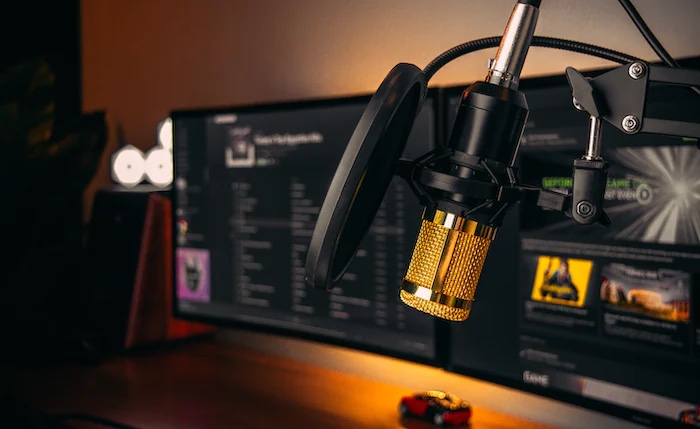The Importance of College Radio

More stories from Heather Holm
Those that enter the O’Connor Campus Center (the Coop) are likely to hear a stream of music from all genres emerging from the basement. This space is home to WRCU-FM 90.1, Colgate’s radio station that first began airing music in 1951 and has only continued to grow in importance today. In a time when many find new music through streaming platforms, such as Spotify and Apple Music, or social media, especially Tik Tok, the humanity behind college radio stations serves as an excellent check on the power of ever-evolving algorithms.
Spotify has admitted to using the BaRT A.I. system to personalize the app for each of its users. “The BaRT system is Spotify’s central balancing act. Its whole purpose is to give you music that Spotify is confident you’ll like, based on your previous listening activity,” states a Medium article titled “How Spotify’s Algorithm Knows Exactly What You Want to Listen To.” While the algorithm is also programmed to show the user new genres and artists, it opens the possibility of artists who are unable to follow the rules of the A.I. system’s game to not receive the recognition they deserve. By students having the power to hand-select each of the songs played on their shows, it can better diversify listeners’ music palettes — a sentiment that sophomore and WRCU’s production director Meg McClenahan agrees with. “You can play your friends’ music […] then you’re letting smaller artists shine and introducing everyone else,” she said.
In addition to less A.I. involvement in the music listening experience, college radio also affords hosts more freedom in the programming of their shows than commercial radio stations, such as KISS-FM, allow: “We don’t have a boss telling us what to play. You can play whatever you want. You don’t have to play the five top songs every three hours,” McClenahan, who is also a DJ for the station, added. Commercial radio is oftentimes plagued by songs labels pay the station to promote or confined to songs that hold or have held high positions on the Billboard charts. Stations like WRCU with their vast digital and physical record catalogs make it possible for nearly any song to be played on air.
The ethos of WRCU helps it stand out from other college radio stations; all songs that are played by the station must be purchased from the artist. “You can look at other schools and people play their playlists off Spotify […] which is fine but then the artists aren’t getting paid. You’re just screwing them over and part of really liking music is wanting to support the people you’re listening to,” said McClenahan. She also explained that having DJs buy songs that aren’t in the station’s catalog or not within the station’s/host’s budget to purchase forces them to find music through alternative sources: “Part of being in radio is wanting to find new music and wanting to discover it […] instead of the artists you have on Spotify, you have to go on Bandcamp,” she said. Bandcamp is a music streaming platform that centers independent artists more than its competitors. WRCU’s encouragement of DJs to use this site further helps facilitate the listener’s exposure to songs they wouldn’t have found on their own.
Beyond the exposure college radio provides to lesser-known artists, it also serves as a source of community and enrichment for students. Senior Phoebe Metzger-Levitt, WRCU’s program director, said, “Everything outside of my academic life I think I have gotten through radio. It’s a really productive space.” She continued, “We’re trying to create a really inclusive social community even if you don’t have a show or you’re not explicitly a member of WRCU, we’re always open to people. […] It’s not just a social organization where all you’re thinking about is a party or getting together with your friends.” At a school where the majority of the social scene is determined by Greek life, it’s important to maintain spaces for students to come together that center different priorities and interests.
Whether it be for the love of music, finding new social outlets or an entirely unrelated reason, more and more Colgate students are discovering the power of college radio. “We’ve had an overwhelming amount of applications this semester and last semester,” said Metzger-Levitt. As a senior who has attended Colgate throughout multiple years of unprecedented admission cycles for the school, Metzger-Levitt attributes WRCU’s increase in popularity to changes in campus culture: “As the acceptance rate gets lower, it’s just a different group of students. […] I’ve noticed so many more creative things happening on campus. […] The student body has become more interested in creative outlets and this is a way for them to do that.”
College radio has proven to be integral in the discovery and promotion of new music. With multiple semesters of it being competitive to get a time slot on WRCU’s program schedule, the station has shown that they have a greater presence on campus. Despite the demand for involvement in WRCU, it’s undeniable that most use their preferred streaming platform to listen to music. With hours of innovative, student-led shows being played each day, it’s time we start paying attention to the sounds emitting from the Coop basement and tuning in online. For those looking to be introduced to a variety of new music, look no further than your college’s radio station.

Heather Holm is a junior from Westlake Village, CA concentrating in political science. She has previously served as an Assistant Commentary Editor as well...









